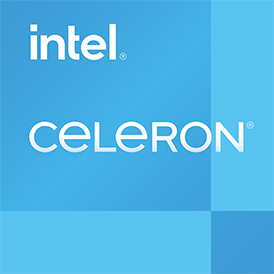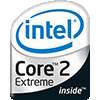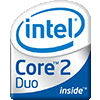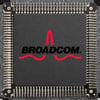
Intel Celeron 1037U Benchmark, Test and specs
Last updated:
The Intel Celeron 1037U has 2 cores with 2 threads and is based on the 3. gen of the Intel Celeron series. The processor uses a mainboard with the BGA 1023 socket and was released in Q1/2013. The Intel Celeron 1037U scores 376 points in the Geekbench 5 single-core benchmark. In the Geekbench 5 multi-core benchmark, the result is 738 points.

| Name: | Intel Celeron 1037U |
|---|---|
| Family: | Intel Celeron (165) |
| CPU group: | Intel Celeron 1000 (9) |
| Architecture: | Ivy Bridge U |
| Segment: | Mobile |
| Generation: | 3 |
| Predecessor: | -- |
| Successor: | -- |
CPU Cores and Base Frequency
The Intel Celeron 1037U has 2 CPU cores and can calculate 2 threads in parallel. The clock frequency of the Intel Celeron 1037U is 1.80 GHz. The number of CPU cores greatly affects the speed of the processor and is an important performance indicator.
| CPU Cores / Threads: | 2 / 2 |
|---|---|
| Core architecture: | normal |
| Cores: | 2x |
| Hyperthreading / SMT: | No |
|---|---|
| Overclocking: | No |
| Frequency: | 1.80 GHz |
| Turbo Frequency (1 Core): | -- |
| Turbo Frequency (2 Cores): | -- |
Internal Graphics
The Intel Celeron 1037U has integrated graphics, called iGPU for short. Specifically, the Intel Celeron 1037U uses the Intel HD Graphics (Ivy Bridge GT1), which has 48 texture shaders and 6 execution units. The iGPU uses the system's main memory as graphics memory and sits on the processor's die.
| GPU name: | Intel HD Graphics (Ivy Bridge GT1) |
|---|---|
| GPU frequency: | 0.35 GHz |
| GPU (Turbo): | 1.00 GHz |
| Compute units: | 6 |
| Shader: | 48 |
| Hardware Raytracing: | No |
| Release date: | Q4/2012 |
| Max. displays: | 3 |
|---|---|
| Generation: | 7 |
| Direct X: | 11.0 |
| Technology: | 22 nm |
| Max. GPU Memory: | 2 GB |
| Frame Generation: | No |
Hardware codec support
A photo or video codec that is accelerated in hardware can greatly accelerate the working speed of a processor and extend the battery life of notebooks or smartphones when playing videos.
| h265 / HEVC (8 bit): | No |
|---|---|
| h265 / HEVC (10 bit): | No |
| h264: | Decode / Encode |
| VP8: | No |
| VP9: | No |
| AV1: | No |
|---|---|
| AVC: | Decode / Encode |
| VC-1: | Decode |
| JPEG: | Decode |
Memory & PCIeThe processor can use up to 32 GB memory in 2 (Dual Channel) memory channels. The maximum memory bandwidth is 25.6 GB/s. The memory type as well as the amount of memory can greatly affect the speed of the system. |
|
| Memory type: | Memory bandwidth: |
|---|---|
| DDR3L-1600 DDR3-1600 | 25.6 GB/s 25.6 GB/s |
| Max. Memory: | 32 GB |
| Memory channels: | 2 (Dual Channel) |
| ECC: | No |
| PCIe: | 2.0 x 16 |
| PCIe Bandwidth: | 8.0 GB/s |
Thermal ManagementThe thermal design power (TDP for short) of the processor is 17 W. The TDP specifies the necessary cooling solution that is required to cool the processor sufficiently. The TDP usually gives a rough idea of the actual power consumption of the CPU. |
|
|---|---|
| TDP (PL1 / PBP): | 17 W |
| TDP (PL2): | -- |
| TDP up: | -- |
| TDP down: | -- |
| Tjunction max.: | 105 °C |
Technical details
The Intel Celeron 1037U is made in 22 nm. The smaller the manufacturing process of a CPU, the more modern and energy-efficient it is. Overall, the processor has 2.00 MB cache. A large cache can greatly speed up the processor's speed in some cases such as games.
| Technology: | 22 nm |
|---|---|
| Chip design: | Monolithic |
| Socket: | BGA 1023 |
| L2-Cache: | -- |
| L3-Cache: | 2.00 MB |
| AES-NI: | Yes |
| Operating systems: | Windows 10, Linux |
| Virtualization: | VT-x, VT-x EPT, VT-d |
|---|---|
| Instruction set (ISA): | x86-64 (64 bit) |
| ISA extensions: | SSE4.1, SSE4.2 |
| Release date: | Q1/2013 |
| Release price: | -- |
| Part Number: | -- |
| Documents: | Technical data sheet |
Rate this processor
Benchmark results

The benchmark results for the Intel Celeron 1037U have been carefully checked by us. We only publish benchmark results that have been created by us or that have been submitted by a visitor and then checked by a team member. All results are based on and fullfill our benchmark guidelines.
Geekbench 5, 64bit (Single-Core)
Geekbench 5 is a cross plattform benchmark that heavily uses the systems memory. A fast memory will push the result a lot. The single-core test only uses one CPU core, the amount of cores or hyperthreading ability doesn't count.

|
AMD A4-4020
2C 2T @ 3.40 GHz |
||

|
AMD Phenom II X3 720
3C 3T @ 2.80 GHz |
||

|
Intel Core 2 Quad Q9400
4C 4T @ 2.66 GHz |
||
|
|
Intel Celeron 1037U
2C 2T @ 1.80 GHz |
||

|
AMD Athlon II X3 440
3C 3T @ 3.00 GHz |
||

|
AMD Athlon II X4 638
4C 4T @ 2.70 GHz |
||

|
AMD A10-5757M
4C 4T @ 3.50 GHz |
||
Geekbench 5, 64bit (Multi-Core)
Geekbench 5 is a cross plattform benchmark that heavily uses the systems memory. A fast memory will push the result a lot. The multi-core test involves all CPU cores and taks a big advantage of hyperthreading.

|
AMD Athlon II X2 245e
2C 2T @ 2.90 GHz |
||

|
Intel Pentium J2850
4C 4T @ 2.67 GHz |
||

|
Intel Pentium B940
2C 2T @ 2.00 GHz |
||
|
|
Intel Celeron 1037U
2C 2T @ 1.80 GHz |
||

|
Intel Pentium E6500K
2C 2T @ 2.93 GHz |
||

|
Intel Pentium E6500
2C 2T @ 2.93 GHz |
||

|
AMD Phenom II X2 550
2C 2T @ 3.10 GHz |
||
Geekbench 6 (Single-Core)
Geekbench 6 is a benchmark for modern computers, notebooks and smartphones. What is new is an optimized utilization of newer CPU architectures, e.g. based on the big.LITTLE concept and combining CPU cores of different sizes. The single-core benchmark only evaluates the performance of the fastest CPU core, the number of CPU cores in a processor is irrelevant here.

|
MediaTek Helio P70
8C 8T @ 2.10 GHz |
||

|
Samsung Exynos 7885
8C 8T @ 2.20 GHz |
||

|
Intel Pentium E5200
2C 2T @ 2.50 GHz |
||
|
|
Intel Celeron 1037U
2C 2T @ 1.80 GHz |
||
|
|
HiSilicon Kirin 710A
8C 8T @ 2.00 GHz |
||

|
Intel Pentium 2117U
2C 2T @ 1.80 GHz |
||

|
MediaTek MT8183
8C 8T @ 2.00 GHz |
||
Geekbench 6 (Multi-Core)
Geekbench 6 is a benchmark for modern computers, notebooks and smartphones. What is new is an optimized utilization of newer CPU architectures, e.g. based on the big.LITTLE concept and combining CPU cores of different sizes. The multi-core benchmark evaluates the performance of all of the processor's CPU cores. Virtual thread improvements such as AMD SMT or Intel's Hyper-Threading have a positive impact on the benchmark result.

|
Intel Celeron 2950M
2C 2T @ 2.00 GHz |
||

|
Intel Celeron 3855U
2C 2T @ 1.60 GHz |
||

|
Intel Pentium N3710
4C 4T @ 2.56 GHz |
||
|
|
Intel Celeron 1037U
2C 2T @ 1.80 GHz |
||

|
Intel Celeron 3755U
2C 2T @ 1.70 GHz |
||

|
Intel Atom x6414RE
4C 4T @ 1.50 GHz |
||

|
Intel Celeron N4000
2C 2T @ 2.60 GHz |
||
iGPU - FP32 Performance (Single-precision GFLOPS)
The theoretical computing performance of the internal graphics unit of the processor with simple accuracy (32 bit) in GFLOPS. GFLOPS indicates how many billion floating point operations the iGPU can perform per second.

|
Intel Celeron G1610
Intel HD Graphics (Ivy Bridge GT1) @ 1.05 GHz |
||

|
Intel Pentium G2020
Intel HD Graphics (Ivy Bridge GT1) @ 1.05 GHz |
||

|
MediaTek Helio P70
ARM Mali-G72 MP3 @ 0.90 GHz |
||
|
|
Intel Celeron 1037U
Intel HD Graphics (Ivy Bridge GT1) @ 1.00 GHz |
||

|
UNISOC T616
ARM Mali-G57 MP1 @ 0.75 GHz |
||

|
Intel Pentium 2117U
Intel HD Graphics (Ivy Bridge GT1) @ 1.00 GHz |
||

|
Intel Pentium 997
Intel HD Graphics (Sandy Bridge GT1) @ 1.00 GHz |
||
Estimated results for PassMark CPU Mark
Some of the CPUs listed below have been benchmarked by CPU-monkey. However the majority of CPUs have not been tested and the results have been estimated by a CPU-monkey’s secret proprietary formula. As such they do not accurately reflect the actual Passmark CPU mark values and are not endorsed by PassMark Software Pty Ltd.

|
Qualcomm Snapdragon 429
4C 4T @ 1.95 GHz |
||

|
Intel Pentium E5400
2C 2T @ 2.70 GHz |
||

|
AMD Athlon II X2 215
2C 2T @ 2.70 GHz |
||
|
|
Intel Celeron 1037U
2C 2T @ 1.80 GHz |
||

|
Intel Core2 Extreme X6800
2C 2T @ 2.93 GHz |
||

|
Intel Celeron J1850
4C 4T @ 2.00 GHz |
||

|
Intel Celeron 3205U
2C 2T @ 1.50 GHz |
||
CPU-Z Benchmark 17 (Multi-Core)
The CPU-Z benchmark measures a processor's performance by measuring the time it takes the system to complete all benchmark calculations. The faster the benchmark is completed, the higher the score.

|
Intel Pentium E2200
2C 2T @ 2.20 GHz |
||

|
Intel Pentium N3700
4C 4T @ 1.60 GHz |
||

|
Intel Core2 Duo T6570
2C 2T @ 2.10 GHz |
||
|
|
Intel Celeron 1037U
2C 2T @ 1.80 GHz |
||

|
Intel Pentium B960
2C 2T @ 2.20 GHz |
||

|
AMD A6-5400K
2C 2T @ 3.60 GHz |
||

|
Intel Core2 Duo E6400
2C 2T @ 2.13 GHz |
||
Benchmarks

Geekbench 5 (SC)
2,488 entries
2,488 entries

Geekbench 5 (MC)
2,461 entries
2,461 entries

Geekbench 6 (SC)
1,755 entries
1,755 entries

Geekbench 6 (MC)
1,703 entries
1,703 entries

FP32 SP (iGPU)
2,042 entries
2,042 entries

PassMark CPU-Mark
2,392 entries
2,392 entries

CPU-Z Benchmark 17 (MC)
733 entries
733 entries

Geekbench 3 (SC)
942 entries
942 entries

Geekbench 3 (MC)
938 entries
938 entries
Popular comparisons
back to index






